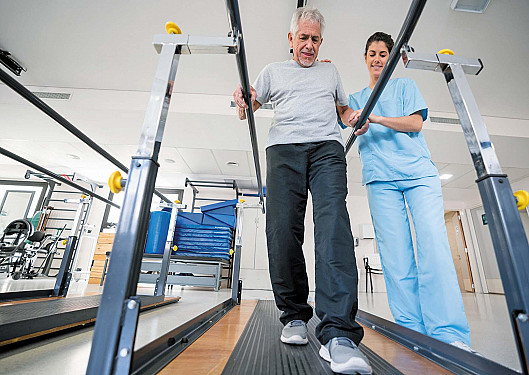Living longer, free of heart disease?
Ask the doctor

Q. As a 78-year-old male, I have an estimated life expectancy of another nine years. Like most people my age, I would like to live longer and stronger. Because the CDC estimates that about a third of guys like me will die of heart disease, it seems that taking special care of my cardiovascular health could extend the quality and length of my life. But will I just be transferring my risk to other diseases that will end my life in roughly the same time frame?
A. Thanks largely to advances in medical care — especially in the field of cardiology — the average life expectancy in the United States rose dramatically over the past few decades. In 1960, the average person lived 70 years, but by 2019, that number had risen to 79. Unfortunately, this upward trend slowed in recent years and the number began falling gradually, due to the rise in rates of diabetes and obesity, both of which are leading contributors to poor cardiovascular health. The dramatic death toll from the COVID-19 pandemic also reduced average life expectancy, which fell to 76 years in 2021.
Ideal cardiovascular health is important at any age, especially when it comes to avoiding strokes, which are often debilitating. As such, prevention remains an important strategy even for people in their 70s and 80s. For the most part, the advice is similar to that for younger people. Lifestyle habits, such as exercising regularly, eating a healthy diet that includes lots of plant-based foods, and getting sufficient sleep (at least seven hours a night) should be the central focus. And even for people in their 80s, there's a clear benefit to treating high blood pressure, elevated LDL cholesterol, and diabetes to lower their risk of heart problems. Avoiding having a heart attack, especially at the age of 80 of older, is a good thing in itself; you avoid the need for hospitalization, procedures, cardiac rehabilitation, and many new medications.
Here's the good news: research suggests that people who follow those heart-healthy recommendations also appear to have a lower risk of developing cancer. The opposite is also true: people with risk factors for heart disease — especially heart attack survivors — may have a higher risk of developing cancer.
And keep this in mind: what's good for your heart is also good for your brain. Taking steps to dodge heart disease also seems to help prevent dementia, including Alzheimer's disease, currently the seventh leading cause of death in this country.
Of course, there's no guarantee that these or other diseases won't occur as you age. Still, shifting the cause of death away from heart disease will likely improve your longevity — maybe enabling you to reach 100!
Image: © Morsa Images/Getty Images
About the Author

Christopher P. Cannon, MD, Editor in Chief, Harvard Heart Letter; Editorial Advisory Board Member, Harvard Health Publishing
Disclaimer:
As a service to our readers, Harvard Health Publishing provides access to our library of archived content. Please note the date of last review or update on all articles.
No content on this site, regardless of date, should ever be used as a substitute for direct medical advice from your doctor or other qualified clinician.
















